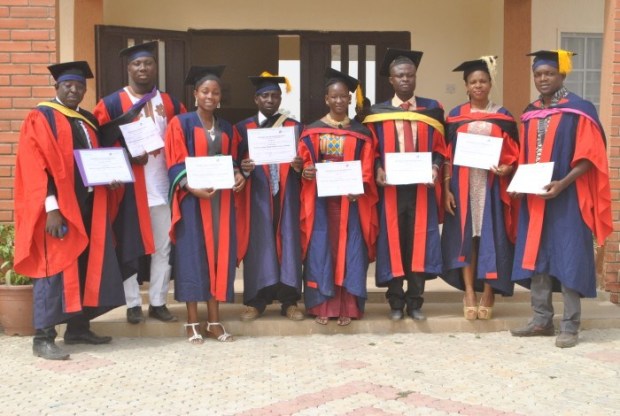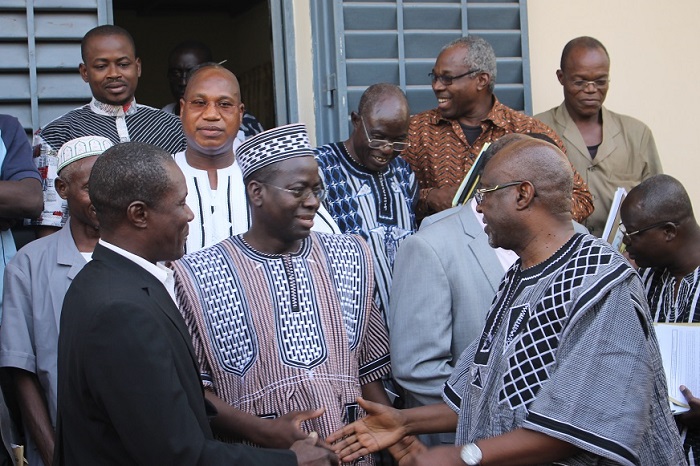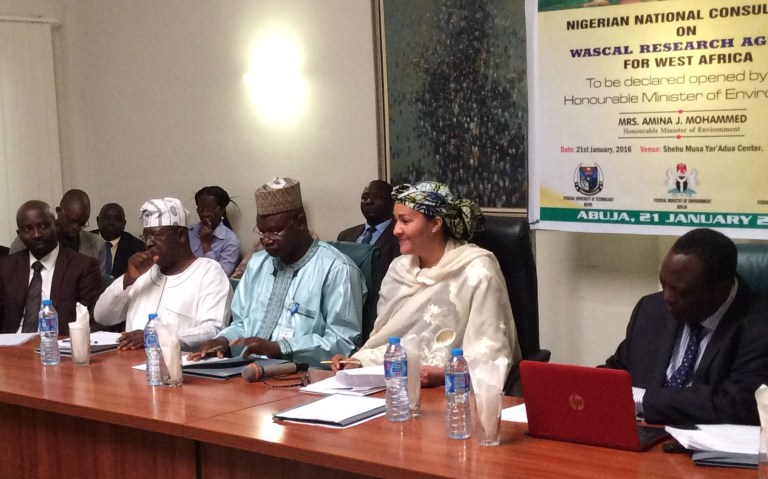Dakar, 7 mars (APS) – L’Afrique de l’Ouest peut contrecarrer les effets en misant sur les sciences orientées vers l’agriculture, l’eau et l’énergie, a soutenu, lundi, à Dakar, l’universitaire allemand Joachim Von Braun.
“Il faut orienter les sciences et les recherches vers l’agriculture, l’eau et les énergies pour trouver des solutions intelligentes, capables de faire face au changement climatique qui affecte tous les secteurs de développement en Afrique de l’Ouest”, a-t-il préconisé.
Joachim Von Braun, enseignant au Centre de recherches pour le développement (ZEF) de l’Université de Bonn, s’adressait à des journalistes, en marge d’une visite du secrétaire d’Etat allemand chargé de l’Enseignement supérieur et de la recherche, Dr George Shutte.
Dans le cadre de ce déplacement au Sénégal, M.Shutte a visité le Centre de service ouest-africain pour le changement climatique et l’utilisation adaptée des sols (WASCAL, en anglais) dont Joachim Von Braun est le co-président.
Ce centre hébergé par l’Université Cheikh Anta Diop (UCAD) de Dakar abrite une Ecole doctorale en économie du changement climatique depuis 2010. Il fait partie des 10 écoles financées par le ministère allemand de l’Enseignement supérieur et de la Recherche (BMBF), dans le cadre d’un réseau de partenariats diversifiés.
WASCAL veut contribuer à la formation d’une nouvelle génération de chercheurs et au renforcement des capacités des décideurs politiques africains dans le domaine du changement climatique et de la gestion des terres.
Ce centre “doit prendre les devants dans le combat de l’Afrique de l’Ouest contre le changement climatique, en élaborant des stratégies d’adaptation et d’atténuation adéquates”, a soutenu Dr Von Braun, professeur au Centre de recherches pour le développement (ZEF) de l’Université de Bonn.
Selon le professeur Braun, la prise en compte des nouvelles technologies “constitue une dimension importante dans la recherche de solutions contre les effets néfastes des changements de climat”. Cette dynamique devrait encourager la coopération entre scientifiques sénégalais et allemands, a-t-il fait valoir.
Le changement climatique atteint “une proportion sérieuse” en Afrique de l’Ouest, à travers des secteurs tels que l’agriculture, l’élevage, la pêche, le tourisme, a de son côté indiqué le professeur Ahmadou Aly Mbaye, directeur du WASCAL.
Partant de ce que les pays africains subissent les effets du changement climatique alors qu’ils ne sont pas émetteur de quantités importantes de gaz à effet de serre, le gouvernement allemand a mis en place un fond carbone, a-t-il souligné.
Celui-ci a permis de financer 10 écoles ouest-africaines dont l’Ecole doctorale sur l’économie du changement climatique de l’Université Cheikh Anta Diop de Dakar, a expliqué M.Mbaye.






